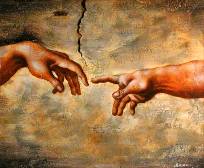 Virtue is understated, underappreciated, under-valuated, and misunderstood. This is a sad litany for something as important as virtue. And how important, then, is virtue? It is as important to the moral life as money is to the economy. They both operate as a vital medium of exchange. The economy keeps money in circulation; morality keeps love in circulation. The importance of money to the economy, however, is not questioned. Virtue, as its opponents have said, is its own punishment.
Virtue is understated, underappreciated, under-valuated, and misunderstood. This is a sad litany for something as important as virtue. And how important, then, is virtue? It is as important to the moral life as money is to the economy. They both operate as a vital medium of exchange. The economy keeps money in circulation; morality keeps love in circulation. The importance of money to the economy, however, is not questioned. Virtue, as its opponents have said, is its own punishment.
“Hell is other people,” Jean-Paul Sartre famously stated. His cynical image, however, is apt, but only for a gathering of unvirtuous people who, as is their wont, prey upon each other. A community of virtuous people, on the other hand, who love each other, is at least a foretaste of paradise. Sartre found life absurd because he did not find love at all. Where there is no virtue, love remains unexpressed. Hell is not only the place where there is no love, but also the place where there is no virtue.
Gas is vital for the operation of a car. But gas does not get into the fuel tank directly; it requires a hose that serves as a conduit. Likewise, love does not flow directly from one person into another; it requires virtue that serves as a mode of transmission. We express love to each other not directly, but through virtue. Virtue is our moral medium of exchange. Without it, we are spiritually bankrupt.
Only God can transmit his love directly. Nonetheless, He chose Mary, the Mother of God, to serve as the Mediatrix of all grace. Nathaniel Hawthorne, though not a Catholic, revealed a fine understanding of Mary’s role in this regard when he made the following statement: “I have always envied the Catholics their faith in that sweet, sacred, Virgin Mother who stands between them and the Deity, intercepting somewhat His awful splendor, but permitting His love to stream on the worshipper more intelligently to human comprehension through the medium of a woman’s tenderness.” Mary’s tenderness is her virtuous way of directing God’s love into our hearts.
Each of us comes into the world with a certain capital of love. It is ours to spend. And the remarkable thing about spending love (unlike spending money) is that the more we spend, the more our supply is increased. With love as our currency, we can go on a lifelong spending spree and never go broke. But we cannot spend a dollop of our love unless we channel it through some virtue. A simple act of kindness, for example, can brighten a person’s day. Kindness is love’s low voltage way of expressing itself to complete strangers without fear of embarrassment or threat of obligation. Kindness is a natural way of affirming the inherent goodness of others and of stirring up their own supply of love. Kindness begets kindness. It can even prepare the way to friendship where additional virtues such as fidelity, patience, and courage come into play. Kindness, which demands so little of us, can open the door to a flood of subsequent virtues.
In Psalm 118 we read: “Give thanks to the Lord, for he is good, for his kindness endures forever.” Here, God is telling us not only that His virtue is constant and everlasting, but also that His virtue is more powerful than our sin. In addition, He is telling us that if we want to be more Godlike, we, too, must be virtuous. But as we become more Godlike, we do not become less human-like. In fact, because we are created by a God who loves us, the more Godlike we become, the more human we become, which is to say, the more we become ourselves, the person God intended us to be.
As Rev. Lawrence G. Lovasik states in his book, The Hidden Powers of Kindness, “Kind words have converted more sinners than zeal, eloquence, or learning.” “He who is kind is free, even if he is a slave,” wrote St. Augustine; “he who is evil is a slave, even if he is king.” The power of this seemingly modest virtue is inestimable. And it is good to know that such a power is always readily available to us.
We often complain about how much unkindness there is in the world. But this amount of unkindness, however much it may be, exists only because of the lack of kindness practiced by individuals who live in it. The supply of kindness is available; all that is needed is its expression. Expressing love through kindness allows us to stop complaining and begin building a culture of joy. Then we will understand and properly appreciate why virtue is our most important medium of exchange, giving practicality to love and bringing conviviality to life.
We value your comments and encourage you to leave your thoughts below. Please share this important article with others in your network. Thank you! The Editors.












